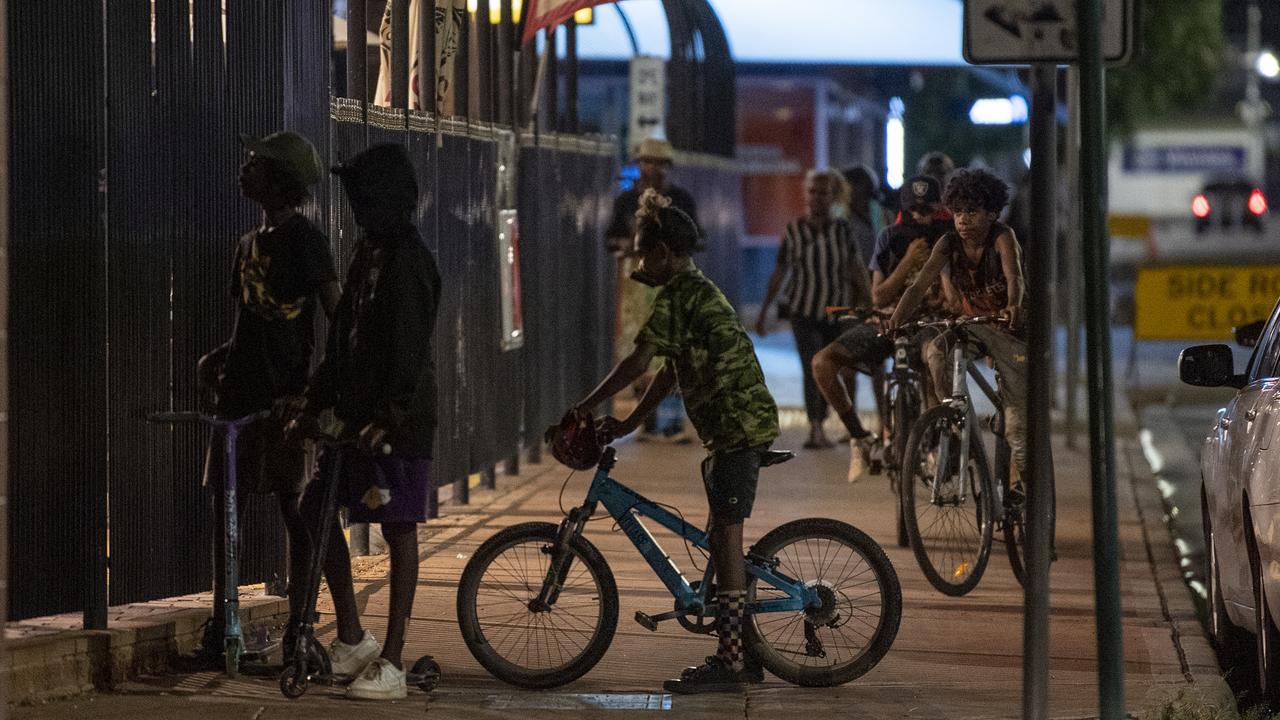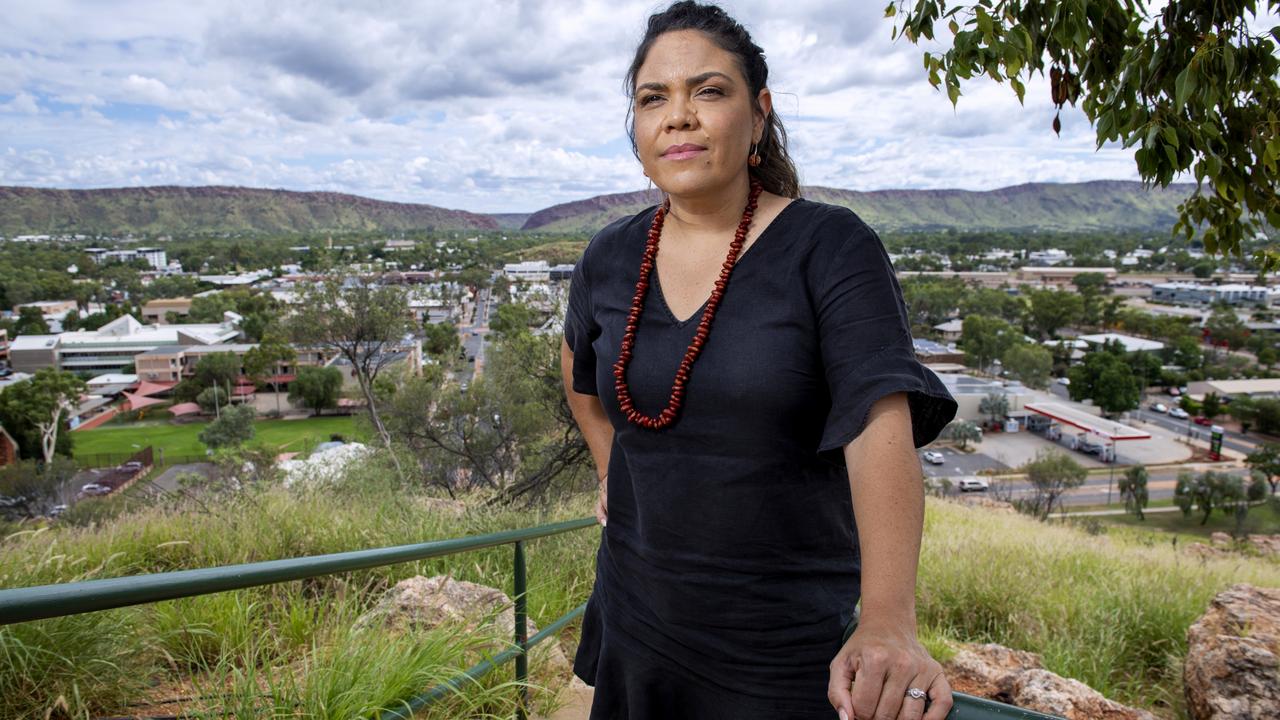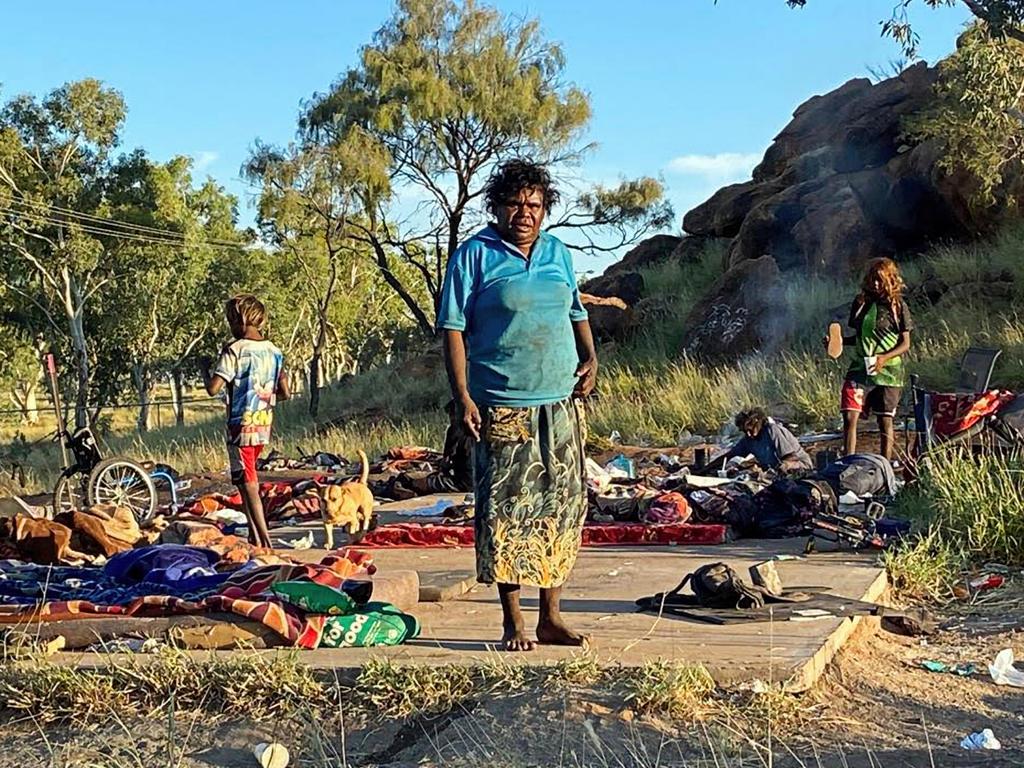Drop in crime welcomed but no time for complacency in Alice Springs
Restrictions on alcohol sold in Alice Springs need to go further, police say, in order to keep crime at a lower rate. Have your say.
News
Don't miss out on the headlines from News. Followed categories will be added to My News.
Volume restrictions on alcohol sold in Alice Springs are needed on top of recent limits that have proven hugely successful in curbing crime in the outback town, say NT Police.
In a report detailing the impact of the first month of heavily reduced takeaway alcohol sales hours and customer limits, police have recommended the town’s measures go further by following the model used in Tennant Creek restricting quantity.
“The measures in Tennant Creek have provided evidence over a number of years that volume control has a substantial effect on alcohol consumption and alcohol related offending,” the NT police report said.
“This also reduces options of secondary supply.”

Volume restrictions enforced in Tennant Creek include that per day a person cannot buy more than 24 cans of full strength beer, 12 bottles of ready to drink mixed, one 2 litre cask of wine, one 750ml bottle of spirits or two 750ml bottles of wine.
News Corp this week exclusively revealed there had been a significant drop in crime in Alice Springs in the month since alcohol restrictions were reintroduced following public pressure on the NT Government.
Domestic violence rates dropped by about a third, and break ins halved in February compared to January, when a crime wave sparked national outcry.
Labor MP Marion Scrymgour, who’s electorate of Lingiari covers most of the NT, said the alcohol measures have “clearly had an immediate effect”.
“These measures have provided much needed and necessary respite for our frontline workers, the community, but in particular the women and children affected by alcohol-related violence,” she said.
“As we all know alcohol restrictions are only one part of the solution.
“That’s why the federal Labor Government is stepping up and working with all stakeholders on a long-term plan for our region.”

Indigenous Australians Minister Linda Burney described the NT Police figures as a promising outcome.
“These are encouraging early signs of progress but we are not complacent,” she said.
“It’s a big step in the right direction, but we know there’s a long way to go.”
Coalition Indigenous Australians spokesman Julian Leeser also welcomed the drop in crime.
There is no doubt, the cause of crime, violence and community and family breakdown in Alice Spring is alcohol,” he said.
“The dramatic decline in only a matter of weeks is proof of that.”


Mr Leeser said if NT Police believed there needed to be further limits around the availability of alcohol for sale, then he was “supportive of police recommendations”.
“Right from the start I have said that we need to listen to on-the-ground advice and we need to keep doing what is working,” he said.
NT Country Liberal Senator Jacinta Nampijinpa Price said the issues in Alice could not be solved with a “quick fix” with long-term solutions to “ensure the safety of residents” needed.
“While it is one thing to read the statistics being reported by police, it is another thing to understand the situation on the ground in Alice Springs,” she said.

“After speaking with local alcohol rehabilitation services, it’s been brought to my attention that there has been a drop in police referrals to ‘dry out’ shelters, but a doubling of hospital referrals.”
Ms Price said there was also “anecdotal evidence” suggesting an increase in issues further north in the NT, “which could be a result of people moving to escape the restrictions”.
South Australian Liberal Senator Kerrynne Liddle, who grew up in Alice Springs, said there was “more to do” beyond addressing alcohol-fuelled crime, with housing a particular concern.
“My focus on Alice Springs is not just about the alcohol issues, it’s also about the dysfunction in this disaggregated service response,” she said.

Ms Liddle highlighted the plight of Aboriginal woman Kate Pitjara, who moved her family 230km from the Utopia town camp to the outskirts of Alice Springs so her niece Miranda Pepperill could receive dialysis at the hospital as an example of the ongoing service delivery failures.
The family group — including nine children — have lived on an exposed cement slab not far from Alice Springs’ town centre for almost two years as Ms Pepperill received dialysis three times a week.

Despite having only a tarp for protection from the sweltering summer heat, six of the children go to school each day and the family are determined to stay together to support Ms Pepperill.
Ms Liddle said the family’s case clearly warranted immediate housing assistance so they could stay together as a unit, but help had not been forthcoming despite authorities being made aware of the situation.
The average wait time for public housing in Alice Springs is between six and eight years, with almost 1400 people waiting for a spot in the town.
More Coverage
Originally published as Drop in crime welcomed but no time for complacency in Alice Springs









